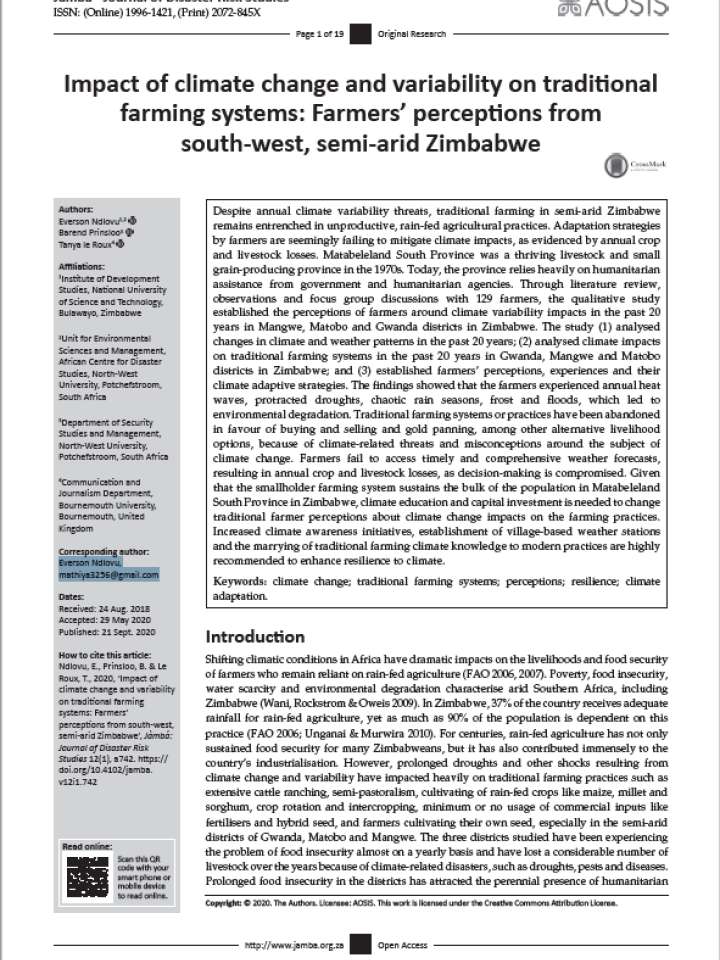Despite annual climate variability threats, traditional farming in semi-arid Zimbabwe remains entrenched in unproductive, rain-fed agricultural practices. Adaptation strategies by farmers are seemingly failing to mitigate climate impacts, as evidenced by annual crop and livestock losses. Matabeleland South Province was a thriving livestock and small grain-producing province in the 1970s. Today, the province relies heavily on humanitarian assistance from government and humanitarian agencies. Through literature review, observations and focus group discussions with 129 farmers, the qualitative study established the perceptions of farmers around climate variability impacts in the past 20 years in Mangwe, Matobo and Gwanda districts in Zimbabwe. The study (1) analysed changes in climate and weather patterns in the past 20 years; (2) analysed climate impacts on traditional farming systems in the past 20 years in Gwanda, Mangwe and Matobo districts in Zimbabwe; and (3) established farmers’ perceptions, experiences and their climate adaptive strategies. The findings showed that the farmers experienced annual heat waves, protracted droughts, chaotic rain seasons, frost and floods, which led to environmental degradation. Traditional farming systems or practices have been abandoned in favour of buying and selling and gold panning, among other alternative livelihood options, because of climate-related threats and misconceptions around the subject of climate change. Farmers fail to access timely and comprehensive weather forecasts, resulting in annual crop and livestock losses, as decision-making is compromised. Given that the smallholder farming system sustains the bulk of the population in Matabeleland South Province in Zimbabwe, climate education and capital investment is needed to change traditional farmer perceptions about climate change impacts on the farming practices. Increased climate awareness initiatives, establishment of village-based weather stations and the marrying of traditional farming climate knowledge to modern practices are highly recommended to enhance resilience to climate.
